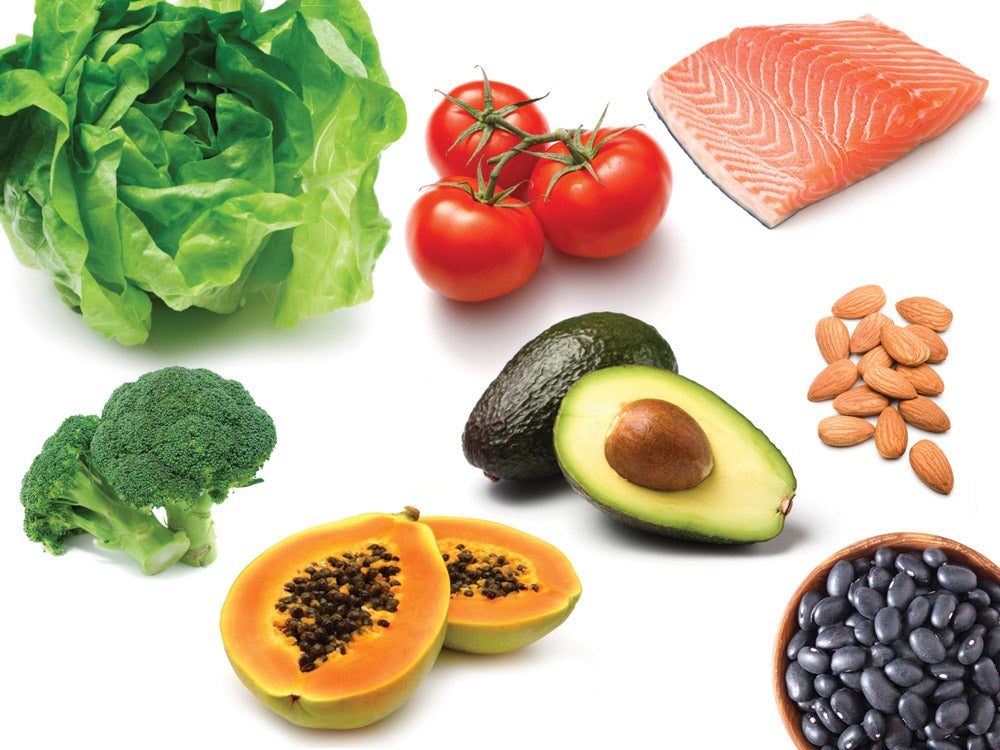Eat Right: 5 Vitamins You Need

Photo: iStock
If you’re not getting sufficient vitamins and minerals, you’ll feel it in your training. These five vitamins are the ones I see being most ignored by my athlete clients. Aim to get 95–100 percent of these vitamins and minerals daily.
Calcium
Daily Value: 1,000 mg*
Benefits: Helps your muscles contract while training, and assists in rebuilding the muscles post-exercise.
Find In: Cheese, sesame seeds, tofu, almonds, dairy products, green leafy vegetables
Iron
Daily Value: 18 mg*
Benefits: Provides your muscles with much-needed oxygen and red blood cells. Without it, your muscles get tired and become fatigued much quicker.
Find In: Potatoes, tuna, beef, dark leafy greens
Vitamin C
Daily Value: 60 mg*
Benefits: Although it’s most commonly known as the anti-cold vitamin, it also helps with absorbing iron, as well as warding off any nausea that can come with taking iron supplements.
Find In: Broccoli, cauliflower, dark leafy greens, oranges, strawberries, bell peppers
RELATED: Demystifying Multivitamins For Athletes
B6, B12
Daily Value: B6, 2 mg; B12, 6 mcg*
Benefits: As the “energy providers,” each one has a specific job, and together they provide the body with a natural boost. Studies have shown that B vitamins can help your mood just as well as any prescription drug.
Find In: Vitamin B6 — potatoes, tuna, salmon, avocados, oats, beans, bananas; Vitamin B12 — tuna, eggs, yogurt, salmon, beef
Potassium
Daily Value: 3,500 mg*
Benefits: It’s essential for conversion of blood sugar into glycogen, which you use to power your body and stay hydrated.
Find In: Dark leafy greens, potatoes, papaya, tomatoes, almonds, avocados, dates
RELATED: Easy Ways To Eat More Veggies
Pill vs. Food
I advise athletes to get vitamins and minerals from natural sources rather than from a supplement because the body better recognizes nutrients when delivered in food form. Take the carrot, best known for vitamin A. When you eat a carrot, the body recognizes not only the vitamin A, but the other enzymes, vitamins and minerals it contains as well. Those work with your own bodily enzymes to break down the components of the carrot so that they can enter into the bloodstream and send the vitamins and minerals to the parts of your body that need it most and in the quickest way possible. Supplements are best treated as a last resort during a time when you’re under particularly heavy stress or training load, or for a deficiency like anemia.
* — Based on FDA recommendations for a 2,000-calorie diet
Get the latest in triathlon training, gear, nutrition and news sent straight to your inbox. Sign up for Triathlete’s newsletter.